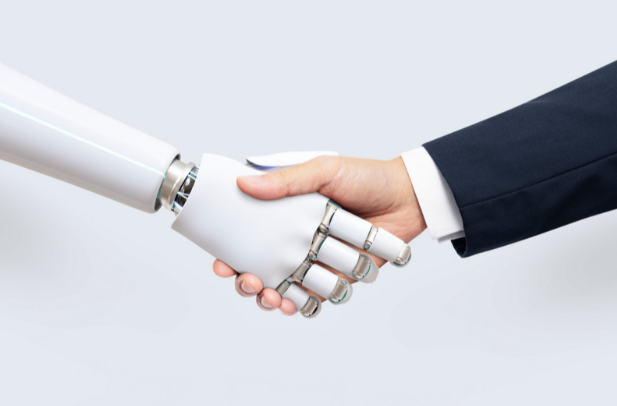Business leaders need to be poised to adopt the latest and greatest technologies when they emerge, and most recently, that means businesses have been focused on integrating machine learning. A field within artificial intelligence, machine learning uses algorithms to develop programs that can improve themselves using data, not unlike how the human brain takes in new information and develops enhanced knowledge and skill.
Though machine learning might seem like an extremely advanced tech field, it is already in use across real organizations. The sooner business leaders learn about practical applications for machine learning in business, the better, so here are a few of the best examples of machine learning in use today:
Recommendation Systems
Perhaps the most ubiquitous application for machine learning is within recommendation systems, which help web users and customers find content or products similar to those they have previously interacted with. These machine learning tools run on filtering methods, which analyze the actions of different users to anticipate what individual users could be interested in doing next. Search engines, ecommerce websites, entertainment platforms, mobile apps and many other digital businesses rely on machine learning-driven recommendation systems to continue engaging consumers.
Fraud Detection
Fraud is a serious threat to every business. Every year, the global economy loses over $5 trillion to fraud, so the more businesses can do to detect and thwart fraud, the better for everyone. Machine learning tools can be trained to detect fraud in action, predict sources of fraud and recommend solutions to ongoing fraud attempts, which could save businesses millions of dollars every year.
Intrusion Detection
The global cost of cybercrime is rapidly approaching $10.5 trillion, so like fraud, businesses everywhere need to do what they can to prevent cyberattacks. Intrusion detection systems identify malicious traffic on business networks; machine learning tools can drive intrusion detection, allowing these systems to recognize new threats without specific updates from cybersecurity firms.
Anomaly Detection
In manufacturing, anomalies are costly deviations that businesses ruthlessly hunt down and eliminate. Anomalies can take the form of defective materials, environmental threats or machine failures. Identifying anomalies can be difficult, which is why machine learning tools are being trained to detect anomalies. Sensors installed in manufacturing equipment can help businesses find and resolve various types of anomalies before they become expensive issues.
Image and Video Recognition
Computers haven't been particularly effective at analyzing visual data like images and videos - until now. Using deep learning tools, computers can now detect defined figures within images and video, to include faces, objects, logos, landmarks and more. This can be useful to businesses for a variety of reasons, for managing copyrighted assets across the web to tracking product usage in customer content to identifying customers for targeted advertising.
Speech Recognition
Like visual data, audio data has also historically been difficult for computers to comprehend. Today, machine learning neural networks can translate audio files into text files to access and analyze the data contained within human speech. Many businesses are utilizing advances in speech recognition as features of virtual assistants, who can understand spoken requests and take action.
Inventory Optimization
Inventory management is one of the most important business operations, yet few businesses invest in optimizing their inventory systems. Though inventory optimization isn't commonly discussed as a machine learning use case, machine learning could revolutionize how business leaders control their stock, manage their warehouses and interact with their supply chains. Machine learning tools trained for inventory optimization ensure that businesses have just enough inventory stored to sell, so businesses don't waste resources on excess stock or sell out prematurely.
By no means are these the only business applications for machine learning. Because machine learning is such a robust technology, every organization can develop and adopt machine learning tools to boost their unique processes, offer exclusive products and protect their sensitive systems.















